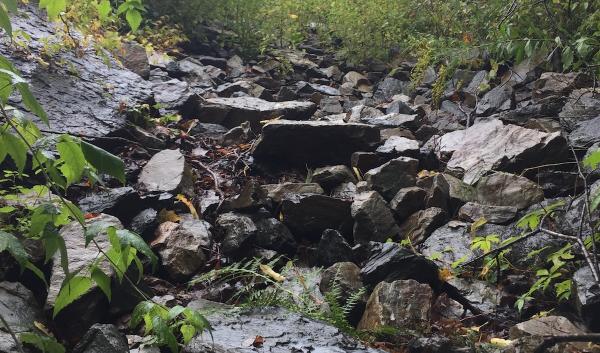Management Actions from the Northeast Hub Region
-
UVM Dairy Farming Research

Research at dairy farms in Vermont shows how management practices can affect water quality, economics, and greenhouse gas emissions.
-
Woodman Horticultural Research Farm at UNH

Check out the research taking place at this New Hampshire Agricultural Experiment Station farm. Experiments range from establishing beneficial plant habitats and wildflower meadows to running cold…
-
How Much is Enough?

Researchers and farmers work towards efficient irrigation by comparing crop water needs to weekly applications on diversified Vermont vegetable farms.
-
UMass Permaculture

The University of Massachusetts is leading the way in sustainability by growing food at five permaculture gardens on campus. The gardens educate students and the public about sequestering carbon and…
-
Irrigation Research at UD

At the University of Delaware's Warrington Irrigation Research Farm in Harbeson, Delaware, researchers are improving irrigation to boost crop yields and manage soil and water resources.
-
How Do Farmers Think about Climate Risk?

In this study, Vermont farmers identified many site-specific risks that they associate with weather fluctuations and climate change. Results offer critical insights into different aspects of climate…
-
Irrigation Pays in Protecting Crop Revenues

Does field crop irrigation make sense as a farm strategy given the number of wet summers in the Northeast?
-
Economics of Gully Erosion Stabilization

Stabilizing gullies is one strategy for adapting to changing climate. This case study evaluates the costs and benefits of restoring gullies on Last Resort Farm in Monkton, Vermont.
-
Cornell Biochar and Compost Facilities

To deal with their organic wastes, Cornell is using slow pyrolysis to create biochar, and also composting. Both can be used as soil amendments and to sequester carbon.
-
Weather and Climate Considerations for Dairy

How does the changing climate impact dairy operations, and what can dairy farmers do to adapt?
-
Managing Grazing to Improve Climate Resilience

A rotational stocking system controls the timing and intensity of grazing by rotating animals among paddocks. This gives the pastures time for rest and regrowth.
-
Cover Cropping to Improve Climate Resilience

Is your field covered? Managing a continuous cover of plants can help improve soil health and prevent erosion.

